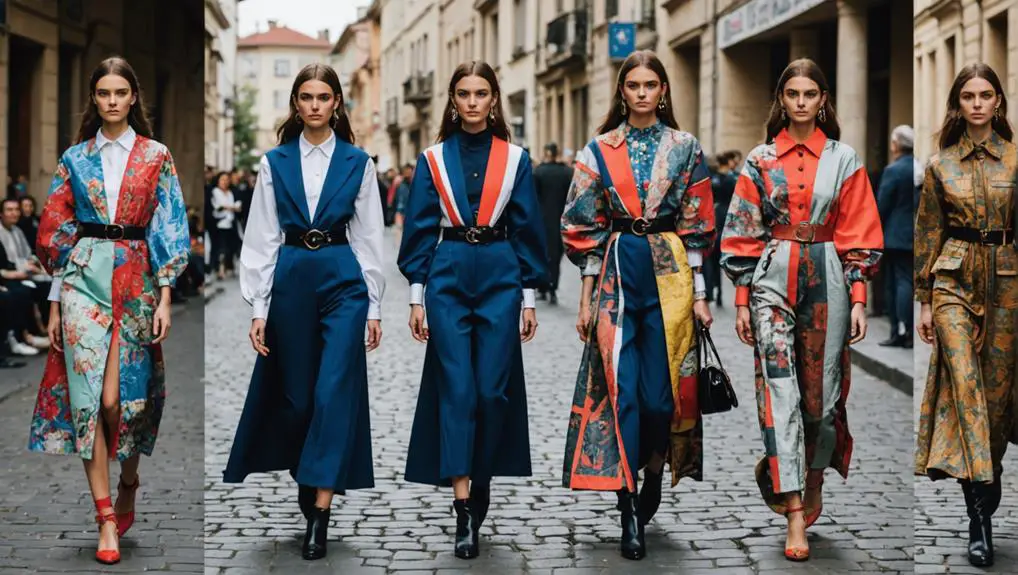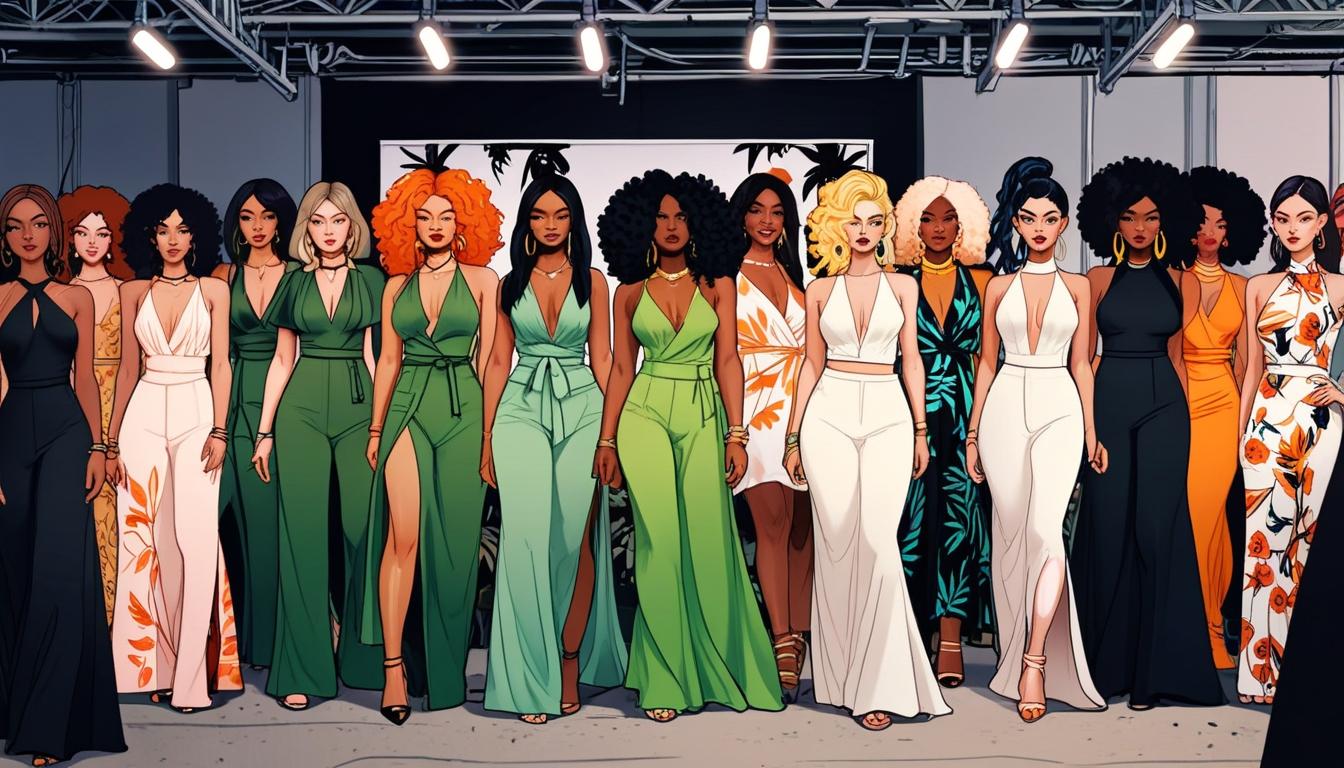You might find it intriguing how Tbilisi Fashion Week has transformed since its modest beginnings in 2015. What started as a small gathering has blossomed into a vibrant arena for emerging designers, capturing the attention of international audiences. As you explore its historical context, key designers, and innovative venues, you'll notice how TFW mirrors both Georgian heritage and modern trends. With its 20th anniversary on the horizon, the question arises: how will Tbilisi Fashion Week continue to shape the future of fashion in Georgia and beyond?
Historical Background of TFW
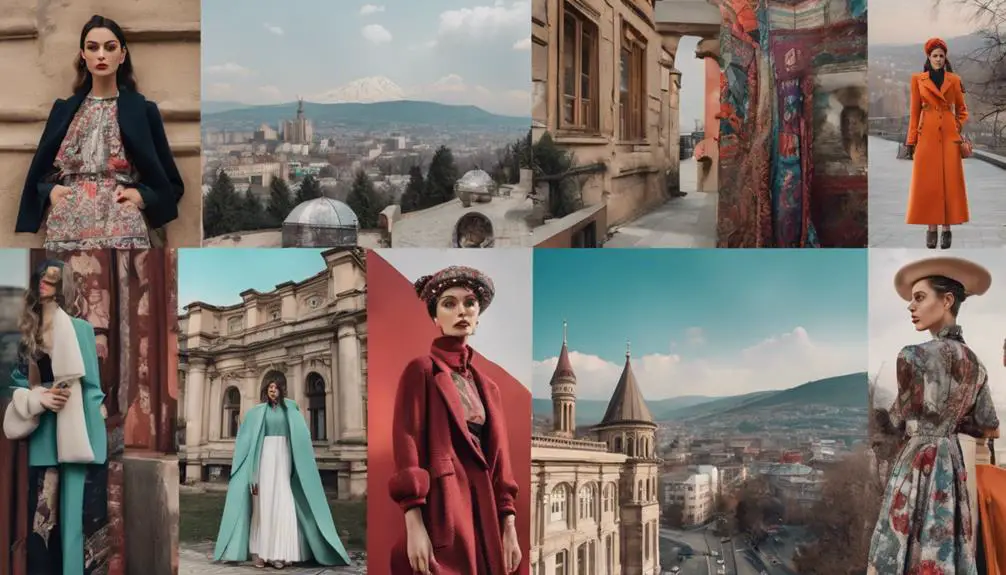
Since its inception in 2015, Tbilisi Fashion Week (TFW) has quickly become an essential platform for emerging Georgian designers. Can you believe it started with just 35 international guests? That's right! Its founding vision was all about showcasing local talent and highlighting Georgia's rich cultural identity through fashion. How cool is that?
However, like any great adventure, TFW faced early challenges. One major hurdle was the unexpected cancellation in Fall 2020 due to the COVID-19 pandemic. Talk about a plot twist! But instead of throwing in the towel, TFW evolved and adapted, proving that resilience is key in the fashion world.
As the event grew, so did the audience. Now, over 100 attendees, including big names like Net-a-porter, flock to Tbilisi to see what's new and exciting. This growth emphasizes how important TFW has become in the global fashion landscape. It's not just a local event anymore; it's recognized as a significant happening in Eastern Europe, even getting shout-outs from major publications like *The New York Times* and *ELLE.ua*. How's that for a fashion week?
Through all the ups and downs, TFW has remained committed to its mission of storytelling and celebrating local identity. So, whether you're a fashion enthusiast or just curious, Tbilisi Fashion Week is definitely worth keeping an eye on. Who knows what amazing designs and stories you'll discover next?
Key Designers and Collections
At Tbilisi Fashion Week, the spotlight shines brightly on a diverse array of designers who push the boundaries of creativity and innovation. You'll find Lasha Jokhadze enchanting everyone with his all-black evening wear collection. It's not just clothes, it's like a theatrical performance that showcases the depth of Georgian design! Then there's Tatia Korsava, whose collection dives into ecological themes and gender-bending silhouettes. Talk about making a statement about contemporary societal issues and environmental concerns!
The menswear brand 1377 is also turning heads by redefining traditional styles. They blend mixed textures with feminine influences, challenging those old gender norms we often see in fashion. How cool is that? And let's not forget Luba Makarenko's SAYYA, which takes inspiration from Henri Matisse and the vibrant aesthetics of the 1980s. Her bold colors and artistic flair bring a unique twist that's hard to ignore.
Keti Chkhikvadze adds a playful touch, with designs that feature bold fabrics and accessories. Her whimsy is contagious and resonates with anyone watching. Plus, there's a growing trend of designer collaborations focused on sustainable practices, where creativity meets responsibility. It's not just about looking good; it's about feeling good too.
Venue Innovations and Experiences
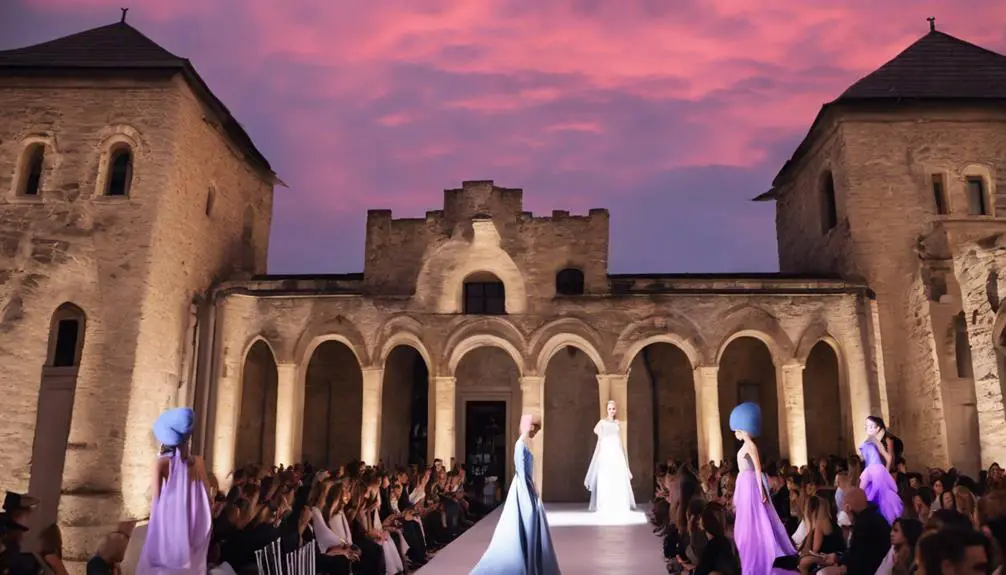
While exploring the unique venues of Tbilisi Fashion Week, you'll discover how each location enhances the overall experience, making it far more than just a series of runway shows. The venue diversity in TFW is truly something to behold! From historic sites to modern spaces, each spot offers its own vibe, turning every show into a mini-adventure.
Imagine walking through the vibrant Ghvinis Ubani art space, where models pose against stunning backdrops that celebrate Georgian culture. Or picture the Factory Tbilisi, a cool repurposed Coca-Cola factory, blending history with contemporary design. It's not just about the clothes; it's about the stories they tell!
Here are some highlights of the venue innovations and experiences you might love:
- Unique settings like the Funicular restaurant, which offers breathtaking views of Tbilisi.
- Creative formats, such as a runway transformed into a synthetic grass pasture, highlighting environmental themes.
- Off-site shows that mix traditional textiles with modern flair, like Lasha Devdariani's show at Chaikhana Bazar.
- Cultural engagement through venues that integrate local history and architecture.
- Experiential design that makes every collection feel alive and connected to its surroundings.
Each venue at TFW isn't just a backdrop; it's part of the story. So, are you ready to plunge into this vibrant fashion world and experience it all? You won't want to miss out!
Cultural Impact and Identity
Tbilisi Fashion Week (TFW) not only showcases innovative designs but also serves as a vibrant canvas for expressing cultural identity and heritage. You see, it's more than just clothes on a runway; it's about cultural storytelling that dives deep into Georgia's rich past. Designers pull inspiration from everything, like Soviet-era nostalgia and traditional textiles from the Silk Road. Isn't that cool?
In its 18th edition, TFW put a spotlight on eco-fashion, showing how fashion can raise awareness about important social issues. Picture it: designers challenging gender norms while reflecting on ecological threats. They're not just creating pretty outfits; they're sparking conversations! This event also shines a light on local identity expression, weaving elements of Georgian history and architecture right into the fabric of the shows.
TFW isn't just for the locals, either. It acts as a cultural exchange platform, helping the world understand Georgia's vibrant culture. When local designers collaborate, they create a sense of community and cultural pride that's hard to miss. Plus, they advocate for social issues, including LGBTQ+ rights, which is super important in a society balancing conservative values with modern ideals.
As Tbilisi steps into the spotlight as a potential fashion capital of Eastern Europe, TFW is essential for showcasing Georgian fashion globally. So, whether you're a fashionista or just curious, TFW invites you to experience the beautiful blend of tradition and modernity in every collection. How exciting is that?
Future Trends in Georgian Fashion
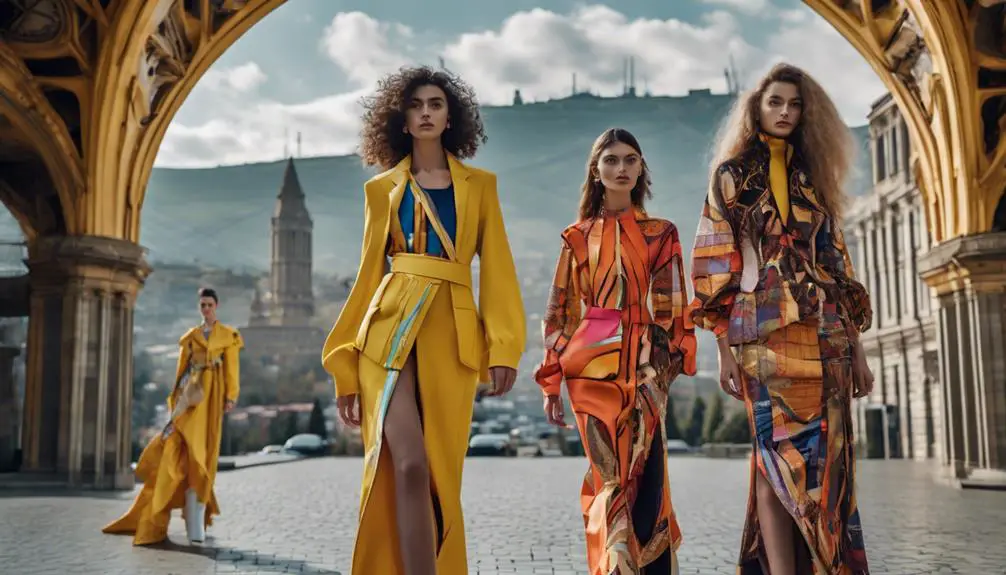
With the approach of its 20th anniversary, Georgian fashion is poised for an exciting evolution. You might be wondering what the future holds for this vibrant scene. Well, it's all about growth, sustainability, and community! Designers are moving toward sustainable practices, using biodegradable materials and traditional craftsmanship to keep our planet happy. Plus, they're all about engaging the local community, which is super cool, right?
Here's what to look forward to:
- A creative hub at the former Coca-Cola factory, featuring a fashion school!
- New brands popping up that focus on accessible, innovative fashion.
- More collaboration among designers and other creative fields.
- A stronger emphasis on sustainability in every collection.
- Increased international recognition for talented Georgian designers.
The future vision also includes boosting local engagement. Designers are prioritizing collaboration, giving you more stylish options. And as anticipation grows for greater government support, we can expect strategic partnerships that'll help Georgian fashion make its mark globally.
Frequently Asked Questions
What Is the Origin of Fashion Week?
Fashion Week originated in the early 20th century, showcasing designers amidst global events. It highlights the fashion industry's cultural significance, connecting trends and creativity while offering a platform for diverse voices and emerging talents.
What Are the Big 4 Fashion Weeks?
When you think of global fashion, the Big Four—New York, London, Milan, and Paris—showcase designers with immense industry impact. Each city holds cultural significance, presenting unique styles and trends that influence fashion worldwide.
What Is the Short History of Tbilisi?
Tbilisi's history showcases a vibrant tapestry of Georgian heritage and culture. Founded in the 5th century, the city evolved through Persian, Ottoman, and Russian influences, embracing a renaissance after independence in 1991, enriching its artistic scene.
What Is the Meaning of Tbilisi?
Tbilisi means "warm," reflecting its inviting atmosphere. You'll discover rich Tbilisi culture through vibrant architecture, savor delicious Tbilisi cuisine, and enjoy lively Tbilisi nightlife, all showcasing the city's diverse heritage and warm hospitality.
